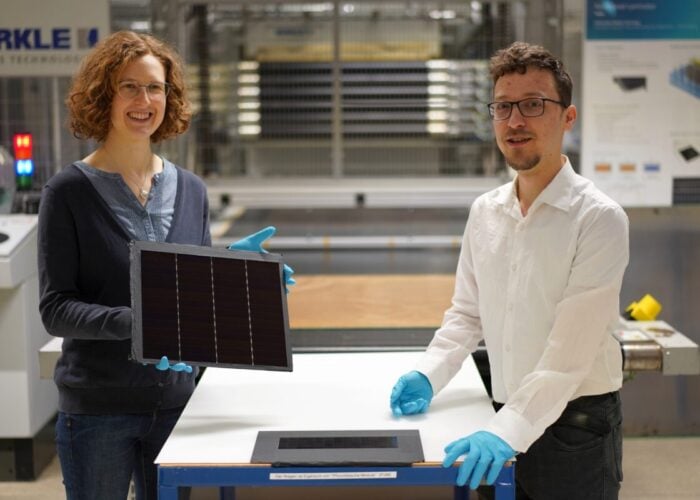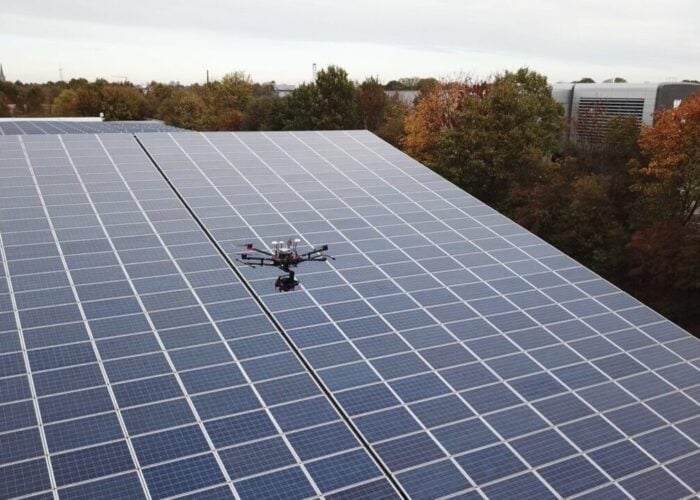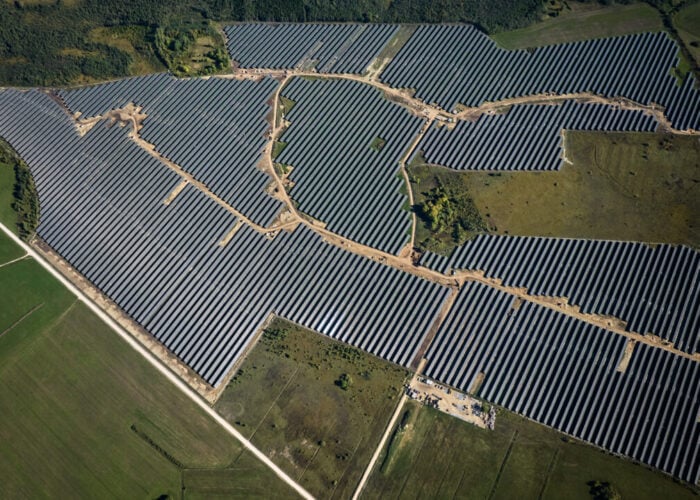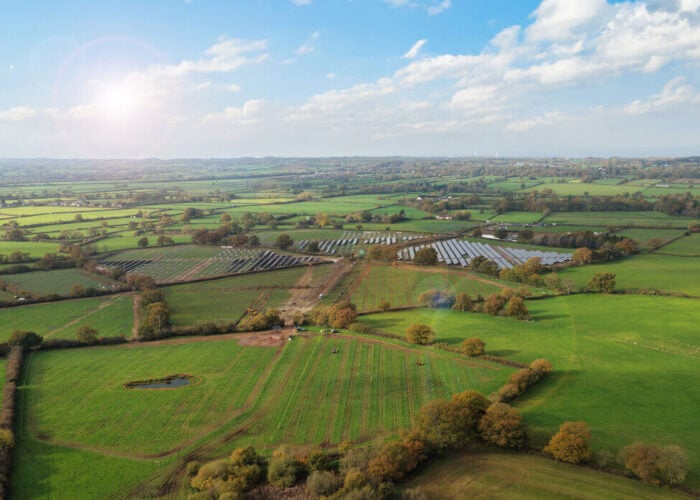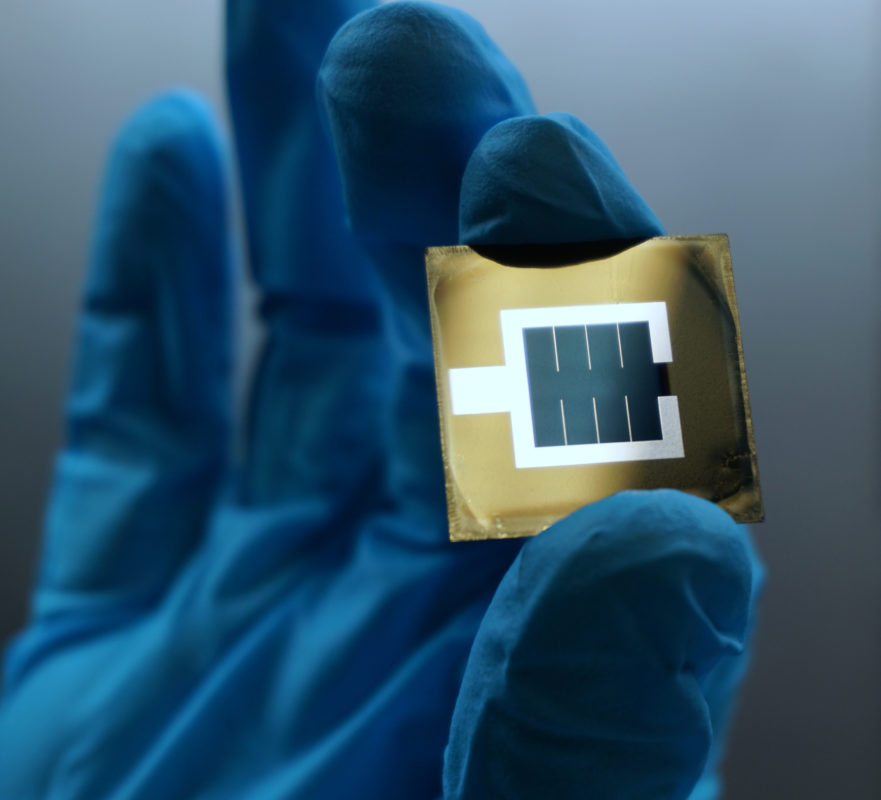
Helmholtz-Zentrum Berlin (HZB) has claimed a silicon/perovskite tandem cell efficiency of 32.5%, returning the record of the cell efficiency to the German research centre.
The rate was certified by the European Solar Test Installation in Italy, as well as being included in the National Renewable Energy Lab chart of solar cell technologies, maintained in the US.
Try Premium for just $1
- Full premium access for the first month at only $1
- Converts to an annual rate after 30 days unless cancelled
- Cancel anytime during the trial period
Premium Benefits
- Expert industry analysis and interviews
- Digital access to PV Tech Power journal
- Exclusive event discounts
Or get the full Premium subscription right away
Or continue reading this article for free
The cell, consisting of a silicon bottom cell and a perovskite top cell, includes an interface modification to reduce charge carrier recombination losses. While the top cell can utilise blue light components, the bottom cell converts the red and near-infrared components of the light spectrum. HZB confirmed that the size of the test cell was 1.014cm².
HZB professor Steve Albrecht said: “This is a really big leap forward that we didn’t foresee a few months ago. All the teams involved at HZB, especially the PV Competence Center (PVComB) and the HySPRINT Innovation lab teams have worked together successfully and with passion.”
HZB’s scientific director, professor Bernd Rech, said: “At 32.5%, the solar cell efficiency of the HZB tandems is now in ranges previously only achieved by expensive III/V semiconductors.”
European research into perovskite cell technology has been on the rise this year. HZB announced plans last month for a four-year research programme in partnership with manufacturer QCells, the PEPPERONI consortium. Last week solar manufacturer Meyer Burger unveiled plans to develop its own perovskite tandem cell technology, also in partnership with HZB.
Perovskites, whilst posting rising efficiencies in lab conditions, are known to suffer from significant cell degradation when exposed to the elements and the technology is yet to be produced at an industrial scale.
Albrecht said of the new record: “We are very excited about the new value as it shows that the perovskite/silicon tandem technology is highly promising for contributing to a sustainable energy supply.”

